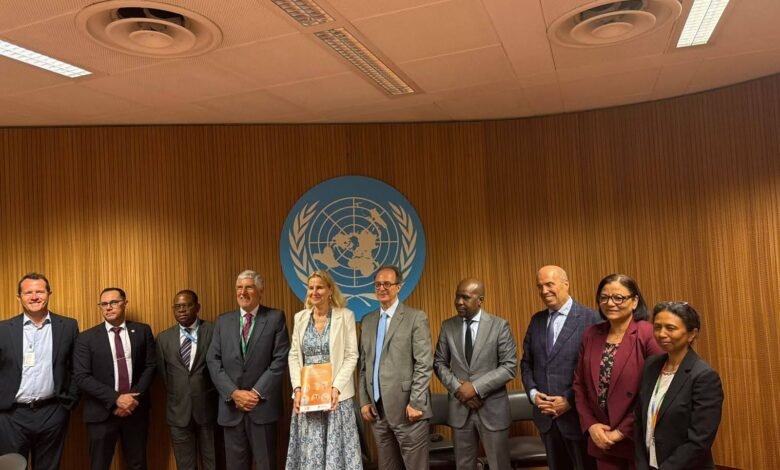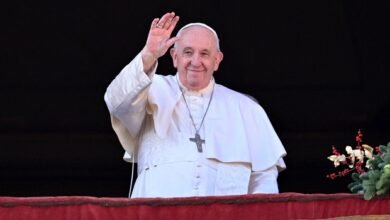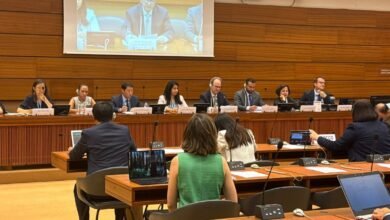Morocco Reaffirms Commitment to Strengthening Human Rights Mechanisms at Geneva 2025

During the 59th session of the Human Rights Council in Geneva, Mr. Mohamed El Habib Belkouch, the Interministerial Delegate for Human Rights, reaffirmed Morocco’s commitment to strengthening national mechanisms for implementation, reporting, and follow-up (NMIRFs) and to sharing its institutional expertise on the international stage.
Speaking at a high-level event held on June 30, 2025, and co-organized by the Office of the High Commissioner for Human Rights (OHCHR), the United Nations Population Fund (UNFPA), the Permanent Mission of Portugal, and the Global Rights Group, Mr. Belkouch underlined Morocco’s readiness to act as a bridge between national commitments, institutional experience, and multilateral dynamics, particularly in areas related to gender equality and the protection of vulnerable groups.





He emphasized Morocco’s permanent willingness to actively contribute to enhancing national mechanisms for human rights implementation and follow-up. He also highlighted the importance of solidarity and dialogue among states as a pathway to transforming universal standards into tangible progress that serves human rights, peace, and sustainable development.
Mr. Belkouch recalled the evolution of the Interministerial Delegation for Human Rights, created in 2011, from a coordination body focused on aligning international commitments with national policies and reporting to international mechanisms, into a platform for dialogue and collective reflection on emerging human rights challenges. He noted the delegation’s role in monitoring Morocco’s international obligations, and its active cooperation with UN agencies, particularly UNFPA through a bilateral cooperation program (2023–2027).
He further explained how the delegation contributes to adapting and operationalizing international standards within the national context, facilitating alignment between UN recommendations and sectoral priorities, and fostering multi-stakeholder dialogue to assess the real-world impact of implementation.
In recognition of its efforts, Morocco was unanimously selected to coordinate the International Network of NMIRFs, launched during the Asuncion Conference in May 2024, which currently brings together 24 member states.
Later that same day, during a session focused on national human rights action plans and the integration of international recommendations into public policy, Ms. Fatima Barkan, Secretary General of the Interministerial Delegation for Human Rights, presented Morocco’s experience in integrating human rights recommendations into national policies.
She announced that Morocco is in the process of preparing a comprehensive national human rights strategy aimed at enhancing the effectiveness of public policies through integrated initiatives, clearly defined priorities, and optimal use of resources to achieve concrete results.
Ms. Barkan emphasized that the strategy will be inclusive, engaging government sectors, civil society, academic institutions, and citizens via digital platforms to ensure broad participation. She noted that it will also take into account emerging challenges, such as technological developments and transnational issues, to ensure a transition aligned with the aspirations of Moroccan society.
She recalled Morocco’s progress under the leadership of His Majesty King Mohammed VI, describing the country’s human rights path as not only a legal obligation but a strategic national priority and a driver of sustainable development. This commitment is reflected in the principles enshrined in the 2011 Constitution and in the adoption of the National Action Plan for Democracy and Human Rights, which aims to promote participatory governance and address systemic gaps.
Ms. Barkan also highlighted the institutional and legislative reforms accompanying this commitment and reiterated that human rights remain a central national priority, backed by unwavering political will and a forward-looking vision for democratic consolidation and human development.
She concluded by detailing the active engagement of the Interministerial Delegation with international human rights mechanisms, including the submission of 56 thematic reports and 4 reports to the Universal Periodic Review (UPR), and by noting that Morocco has received approximately 1,300 recommendations, reflecting its dynamic interaction with the UN system and its commitment to tracking and addressing related issues.





